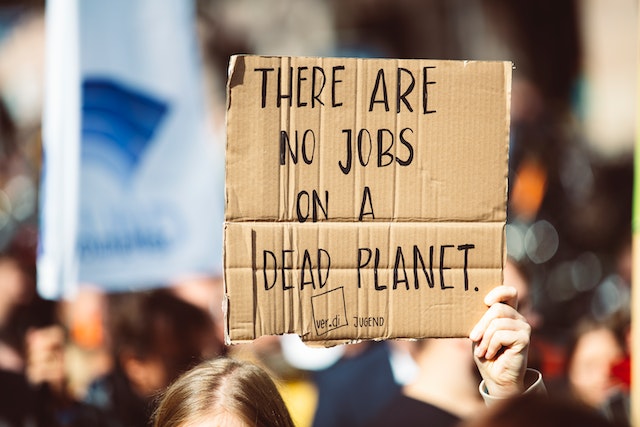We are often bombarded with calls for attention regarding climate change and other environmental issues. We take some of these calls with openness and concern, while others are dismissed. Nevertheless, it is not possible to fully ignore that humankind is witnessing an Anthropocene era, that is, the impact of human beings on ecosystems is notorious. Thus, adherence to environmentally sustainable practices is crucial to mitigate the consequences of human impact. Why, then, some calls for sustainability are disregarded? As with any complex issue, answers are multifold. One possible explanation is that we do not like to be admonished, and even less by people whose messages and style we find annoyingor unreliable.
Environmentalists have an important role in adherence or disdain towards sustainable practices. Through different actions involving society as well in this process, they highlight the promotion of sustainable behaviors, representing the roles, values and behaviors that must be acquired to reduce the impact of human beings on the planet. Additionally, they have a mediating role between institutions and laws, and the rest of society. They can go from simpler and individual actions to challenging and radical ones that aim at modifying society, the latter being the ones eliciting negative responses.Indeed, despite the positive aspects that activists may evoke (e.g. care and concern) negative characteristics are also associated with activists (e.g. radicalism). By Promoting change though unconventional methods, activists may be perceived under the umbrella of stereotypes such as being hostile, militant, eccentric, thus reducing the likelihood of affiliation by society.
Young people are particularly interested in environmental issues and are partially responsible for environmentally related social movements. Greta Thunberg immediately comes to mind, with aggressive demands on leaders, as well as an urgency in implementing solutions and profound transformations. However, young activists feel disregarded by more formal movements. We wanted to understand better why environmentalists – in general, and young in particular – have difficulties in promoting social change by being stereotyped, so we set to work on this.
More precisely, we put to test the hypothesis that a young activist would be perceived differently than an adult activist in important dimensions of stereotypes. More precisely, individuals and groups are characterized in three basic dimensions: competence (related to agency), warmth (related with sociability) and morality (related with trustworthiness). Previous research had shown that young people are considered high in warmth, but low in competence, whereas activists are considered high in competence but low in warmth. How would, then, young activists be perceived? They cannot be penalized in competence because they are activists, and they cannot be penalized in warmth because they are young. Thus, we expected that penalizations would be transferred to the morality/trustworthiness dimension. We created an experimental setting, presenting the exact same discourse from an activist, but half the sample randomly got the information that it was said by a young activist, while the other half randomly got the information that the source was an adult activist. We, then, asked people about their perceptions of the activist, taking into account the three dimensions of stereotypes (competence, warmth, and trustworthiness).
Results from a first study were hard to interpret because we used real environmental activists (Greta Thunberg and Jane Fonda). We, then, conducted a second study, using fictional characters. The results showed a significant difference only regarding the trustworthiness dimension, in which the young activist was perceived as less moral/ trustworthy in comparison with the adult activist. In the remaining dimensions regarding stereotypes (competence and warmth) there were no significant differences. These results show that there may be a relocation of the stereotype towards the morality/trustworthiness dimension, discrediting the activist in this aspect.
Indeed, young environmental activists are depicted in the media as inexperienced, immature, and unable to defend their interests. Their messages can, then, be viewed as unreliable and even incorrect (untrustworthy). Because of their important avant-garde role in the context of climate emergency, it is important that their voice is given credit. Maybe we can all meet half-way: society by trusting more in young activists, and both younger and older activists by joining forces and work each other strengths (avoiding being downplayed by lack of any of these dimensions of stereotypes). All ecosystems on Earth will potentially benefit from these encounters.
For more information about the studies presented, as well as references backing up our statements, please consult:
Farinha C, Rosa M. Just Chill! An Experimental Approach to Stereotypical Attributions Regarding Young Activists. Social Sciences. 2022; 11(10):427. https://doi.org/10.3390/socsci11100427
Catarina Farinha; Miriam Rosa


